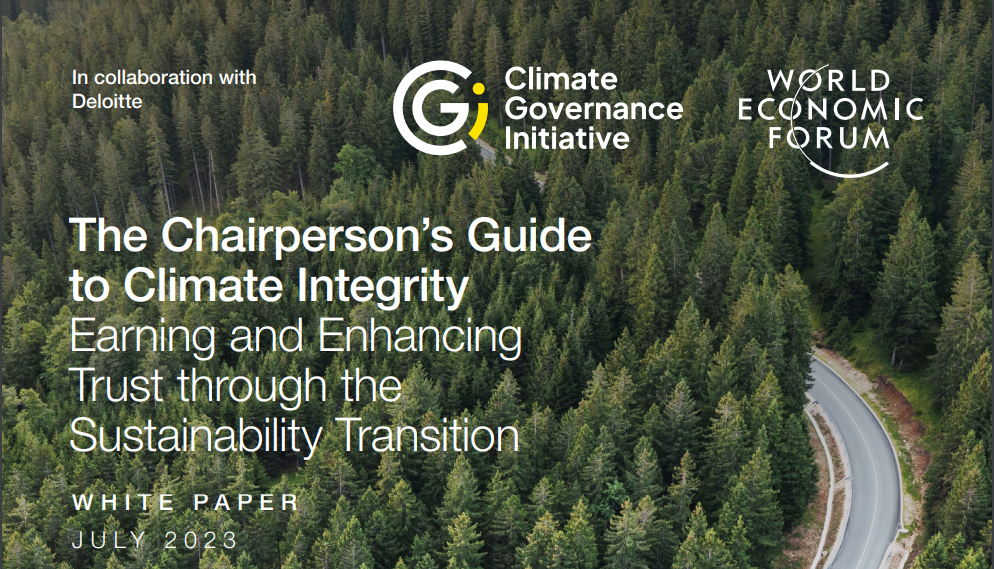The Chairperson's Guide to Climate Integrity
The Chairperson’s Guide to Climate Integrity: Earning and Enhancing Trust through the Sustainability Transition was published by the World Economic Forum and the Climate Governance Initiative in collaboration with Deloitte, exploring the common risks and pressures businesses are facing in light of the sustainability transition.

The Guide discusses the importance of trust and integrity in business and the role of boards of directors in building and maintaining trust. It highlights the increasing stakeholder expectations regarding climate change and nature degradation and the need for businesses to respond diligently and authentically. The summary emphasizes four critical pillars of trust that board members should focus on:
- humanity, showing a genuine interest and curiosity about climate and nature issues;
- transparency, engaging in open dialogue on challenges, uncertainties and trade-offs;
- capacity, empowering management and staff to manage climate and nature-related risks;
- reliability, holding management accountable for consistent and reliable delivery on commitments.
Companies are increasingly exposed to risks from litigation and changing reporting standards related to sustainability. While the introduction of mandatory reporting does not change a director’s fiduciary duty to act in the company’s best interests by considering climate risks and opportunities, it aims to provide a framework to assist board members in identifying and disclosing them
Boards of directors have a responsibility to support and develop the integrity and trust of the organization. They can do so by instilling a culture aligned with the company's purpose, considering interdependencies between systems, and evaluating stakeholder trust. The summary provides recommendations for fostering integrity and trust, including adhering to science-based guidelines, committing to claims and commitments, and communicating plans honestly and clearly.